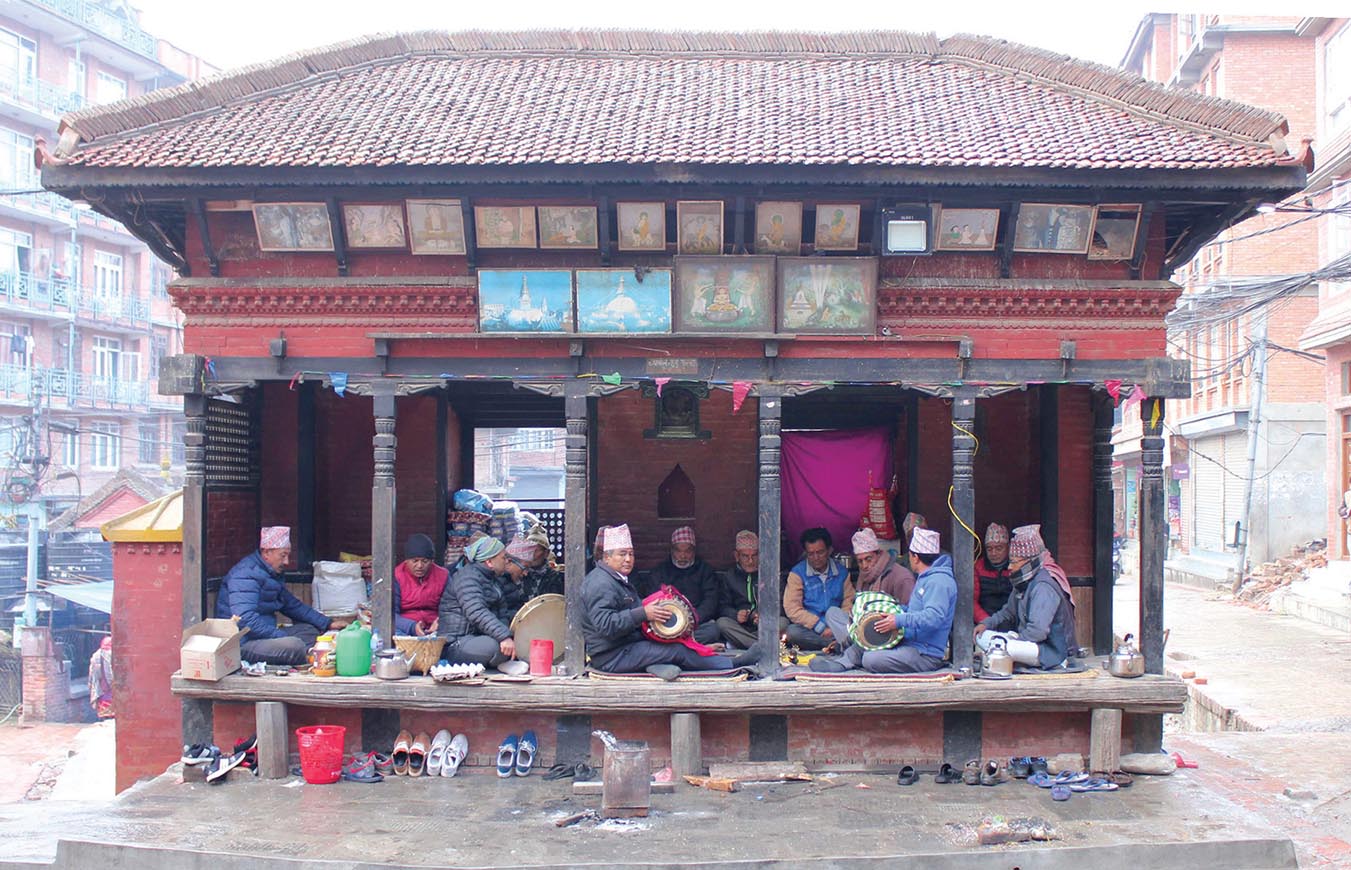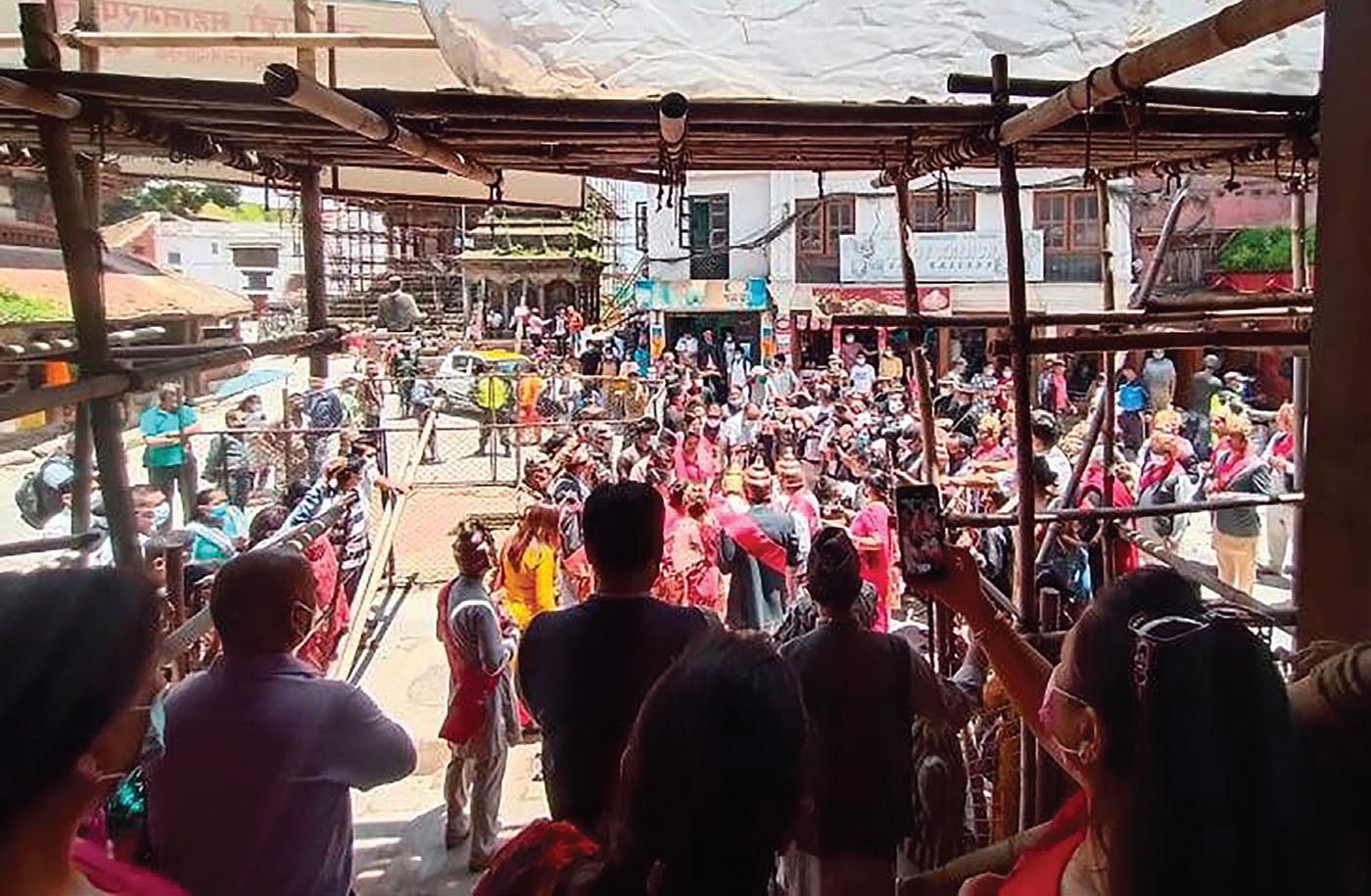Heritage as Placemaking: The Politics of Solidarity and Erasure in South Asia
The project ‘Heritage as Placemaking’ investigates how places are made beyond their material construction through the formation of lasting bonds and shared care. We ask, what unites diverse, and at times ephemeral, communities in enabling or hindering the making of meaningful places with which future generations identify? The project focuses on large and medium-size cities as well as pilgrimage towns in North India and Nepal to capture how heritage placemaking constitutes an imagined, performative, physical, and geographical reorganization of space.
South Asia offers a politically and intellectually potent site for this study because of the ubiquitous interrelation of religious practices, socio-cultural hierarchies, ruptured notions of citizenship, and the accelerated forces of globalisation. Rather than understanding heritage-making solely as the conservative affirmation of a past status quo that preserves and restores original history, we see heritage placemaking as a constant process of formation and association that is deeply entangled in politics. The investment into collective futures is possible through forms of commoning and through evoking the commons to claim and manage shared resources. 1 Studying the collective acting upon place allows us to explore subtle forms of ‘everyday resistance’ as well as the competing and complementary roles of state, market, and civil society. As such, our joint research projects explore the formative forces that enable heritage as well as those that hinder and erase it. Through critical attention to the politics of built, practiced, and performed heritage, the project examines how communal interests are steered and redirected through authorization, leadership, political will, natural or man-made crises, or simply through the loss of interest in connectivity to and ownership of the past. We ask how and why solidarities (re)form or fall apart over the ability to root and take care of the remains of the past. We aim to understand what brings and holds people together in their aspiration to leave an intentional mark for a time beyond their own.

Performance of religious chanting at an arcaded platform in Cyasal, Patan, Nepal (Photo by Christiane Brosius, 2019).
‘Heritage as Placemaking: The Politics of Solidarity and Erasure in South Asia,’ funded by the Swedish Riksbankens Jubileumsfond, is a partnership between four research institutions: Social Science Baha (Nepal), South Asian University (India), SOAS at University of London (UK), and Heidelberg University (Germany). Through thematic research groups, the project explores the importance of commoning – that is, solidaric practices of collaborating and sharing – in vernacular and performative heritage with Christiane Brosius and Monica Mottin at the Heidelberg Center of Transcultural Studies. Brosius will explore how neighbourhood life or civil society activities relate to a particular communal, arcaded architecture (sataḥ or phalcā) to socialise or mobilise, exhibit, trade, play, or perform. Mottin’s work focuses on performance, exploring layers of local, national, and global interpretations of Sita’s birthplace in Janakpur, through ritual and theatre.
The team at the South Asian University (Delhi) consists of Sasanka Perera, Darshana Ashok Kumara, and Thirangie Jayatilake. The project sets out to document changes and transformations within transnational pilgrimage networks. Janakpur will also feature in this study that centers on the experiences of pilgrims who transit in groups through space. By studying the engagement of pilgrims with sites such as Janakpur, Varanasi, Lumbini, Ayodhya, and others, the work will shed light on the discrepancies between the rooted experience of place that Mottin studies and the fleeting engagement with place that Perera explores. Perera and Kumara will concentrate on Sri Lankan pilgrims in Nepal and India to explore their religious interpretations of the sacred landscape and their interaction with pilgrimage sites, local communities, and the nation-state. Jayatilake will contribute to this discourse the dimension of virtual placemaking, exploring the material and discursive creation of pilgrimage circuits and digital spaces beyond the state’s tourism efforts and local realities.

Public interest in the Bajracharya rituals as the pinnacle at Kasthamandapa is established in Kathmandu, Nepal (Photo by Binita Magaiya, 2021).
Heritage-making's bureaucracy, lived gendered experience, activist formations, and selective historicity are investigated at the Social Science Baha in Kathmandu by Sabin Ninglekhu, Monalisa Maharjan, and Binita Magaiya. Ninglekhu will study heritage bureaucracy at work at the pilgrimage sites, counterbalancing Jayatilake’s work while also contributing insights into the bureaucracy at the project’s sites in the Kathmandu valley, highlighting heritage governance and governmentality. Complementing Brosius’ work on the public life and erasure of arcaded platforms, Maharjan studies communal water spouts (dhunge dhara/hiti) as sites of heritage activism as well as of gendered spatialisation. Erasure and loss of heritage are at the heart of Magaiya’s study of ruins and their communal interpretation.
Finally, at SOAS, University of London, Stefanie Lotter and Emiline Smith will engage with the discourses of both development and repatriation, which reposition heritage in the contemporary decolonisation discourse. Lotter will work in collaboration with Magaiya on the conscious erasure of heritage through local and national agents. She will also work on the history of 50 years of international development collaboration in Bhaktapur, where heritage protection, destruction, reconstruction, and ownership have become increasingly contested. Emiline Smith will lead on questions of ownership of heritage by contributing a criminological perspective on heritage theft. With a collaborative study on movable objects and the repatriation discourse of stolen, lost, and rediscovered artefacts, her study adds insights into the entangled nature of placemaking.
Through the project ‘Heritage as Placemaking,’ we open the field of heritage studies in South Asia to enquiries that evolve around questions of ‘whose heritage’ and ‘whose rights.’ 2 Together, the project team aims to create a better understanding of dynamic solidarities amongst different communities invested in the making, the upkeep, and the erasure of living and lived heritage. To this end, the project explores communal resourcefulness, political will, and bureaucratic attention critical to forming solidarities and making place for the future.
Christiane Brosius, Heidelberg Center for Transcultural Studies, Heidelberg University, brosius@hcts.uni-heidelberg.de
Stefanie Lotter, SOAS, University of London, sl70@soas.ac.uk
Sabin Ninglekhu, Social Science Baha, Kathmandu, sninglekhu@soscbaha.org
Sasanka Perera, South Asian University, Delhi, sasankaperera@soc.sau.ac.in